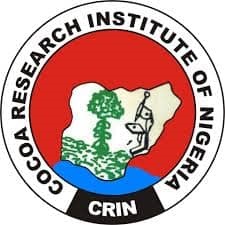Breaking away from the mono-cultural economy by reviving commercial production and industrialisation of cash crops requires coordination that only organised boards involving public and private counterparts could guarantee, industry bigwigs have pointed out. Countries maximising benefits of crops such as ginger, cocoa, cashew, oil palm and coffee, they argue, get farmers, input dealers, off-takers, processors and exporters, among others, organised and coordinated. Data is required for planning, production expansion, input sourcing and industrial utilisation to diversify the base of the economy. Through coordination, accurate data is mined from farmers, aggregators and other critical stakeholders in the value chains.
Speaking on the oil palm industry in Nigeria, Chairman of the Plantation Owners Forum of Nigeria (POFON) and Chief Executive Officer, Aden River Estates Limited, Mr Emmanuel Ibru, said Nigeria is the only major producer that does not have a coordinating body. This, he added, leaves the industry poorly coordinated, dragging productivity and industrialisation of palm oil sector.
Executive Director, Cocoa Research Institute of Nigeria (CRIN), Dr. Patrick Adebola, and Managing Consultant, Foremost Development Services, Mr Fatai Afolabi, also expressed similar views while speaking with The Guardian.
“Malaysia has an oil palm council. Every other leading producer of oil palm in the world has an oil palm council and the council basically formulates policies for the industry and ensures implementation,” Ibru said.
He added that if there is a council with members drawn from all stakeholder groups and government representatives from the Customs Service, research institutes, including the vegetable oil producers, the industry would become better organized with a view to ensuring productivity and best practices. He said major oil palm producers invest in research and development guided by their councils and allow allocation of funds to intend farmers.
Also emphasising the importance of industrial crops, the CRIN boss, Dr. Patrick Adebola, stated that cocoa, cashew, coffee, kola, tea and some others had been known as major foreign exchange earners for the country.
“I believe that if we promote these tree crops, we can reclaim our past sources of revenue for development,” he added.
Dr. Adebola declared that while Cote d’Ivoire and Ghana are waxing stronger in cocoa production, Nigeria struggles with about 250,000 to 300,000 tonnes. This, he said, is a result of the “well-regulated cocoa subsector in Ghana and Cote d’Ivoire.
“Nigeria tends to have more hectares than Cote d’Ivoire, but their production is higher than ours. Everything about cocoa in that country is well regulated.”
Apart from that, he said, good agricultural practices would get us maximum yield, and this could be done by intensive training of farmers through a coordinating body.
“One other way is by regulating agro-chemicals that we use on cocoa farms. In Nigeria now, every agrochemical comes in and farmers use it indiscriminately. This affects the quantity of cocoa we produce and the quality in terms of pesticide residue leading to rejection of some of our cocoa beans when we export. If the cocoa subsector is more regulated, these things will normalise,” he said.
Dr. Adebola said: “the biggest mistake we made was abolishing the cocoa board. There were allegations of corruption, but corruption could have been fixed without winding it down. If you look at Cote d’Ivoire and Ghana, their cocoa sectors are doing well because the boards are in place. They regulate their cocoa subsectors. But in Nigeria, there is no one-stop-shop for cocoa subsector, and I think it is high time the government looked at not only cocoa but also other commodity boards. They should be brought back.”
He suggested that when the commodity boards are brought back, a certain percentage of what they make should be reinvested into research to relieve the government of the burden of exclusively funding research institutes as done in other countries.
In the same vein, President, Cocoa Farmers Association of Nigeria (CFAN), Adeola Adegoke, stated that Nigerian farmers have expertise in cash crop production, and available human, land and financial resources from the crude oil sector should be channeled towards reviving crop production and moribund industries. He emphasized the money-spinning potential of industrialisation and local consumption of cocoa and export of semi-finished bye-product such as cocoa butter.
Managing Consultant, Foremost Development Services, Mr. Fatai Afolabi, who is also Executive Consultant to POFON, said in terms of agricultural data and statistics, the last time Nigeria had agricultural credible data was the time of marketing boards. He said it was their specific function to collate data. They also assisted in production, keeping data of what was produced.
“Part of what was produced was bought over and exported. And because they wanted to export more and more, they had to stimulate more production. It’s a chain which had to function, but the moment they no longer existed, individuals became their own marketing boards and they are not giving out the data.
(https://guardian.ng/features/stakeholders-suggest-how-to-revive-crop-production-for-industrialisation-forex/)


